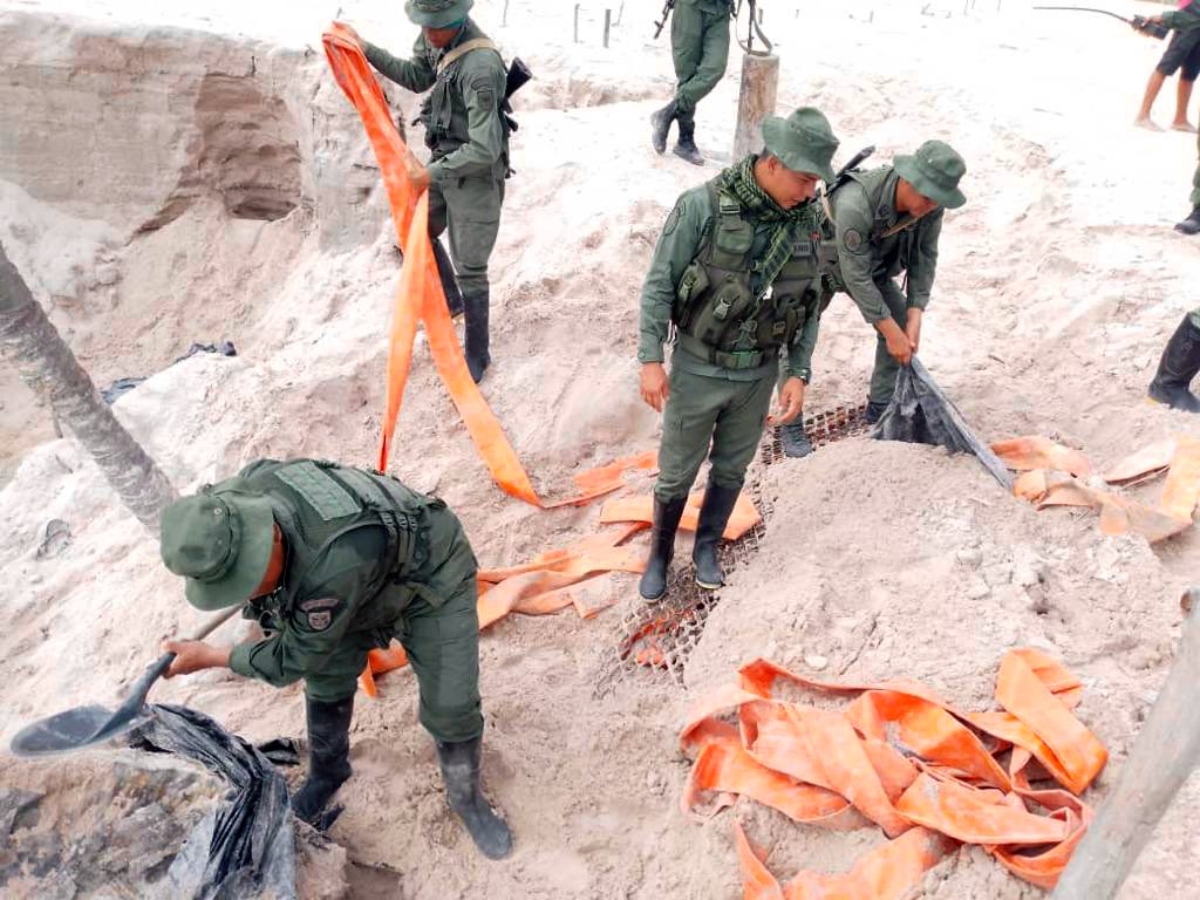staff of the Bolivarian National Armed Force (FANB) remain deployed in the Yapacana National Park, in the state of Amazonas, destroying equipment mining illegal. This was reported by the Operational Strategic Commander of the FANB (Ceofanb), Domingo Hernández Lárez.
Through his account on the social network Twitter, Hernández Lárez explained that predatory environmental groups keep equipment buried with which they arbitrarily violate the territorial legal system.
“FANB deployed in the Yapacana National Park, state Amazonunearthing and destroying illegal mining equipment hidden by environmental predator groups who arbitrarily violate the territorial legal order of that national security zone”, published the Chief of Ceofanb.
In this regard, Hernández Lárez explained that the FANB continues in the state of Amazonas with the Bolivarian Shield Operation 2023 to combat environmental violations, so that all illegal camps will be destroyed.
“All types of mining exploitation are prohibited in national parks and forest reserves because they are areas protected by the State, the camps and equipment located in these areas will be destroyed for infringing the laws of the Republic. # EscudoBolivariano2023 ”, he said on the social network.
FANB committed to the environment
The Chief of the Ceofanb indicated that the FANB troops are committed to the defense and sovereignty of the natural environments of the national territory, for which they will maintain the deployment in the Guayana Integral Defense Strategic Region.
“#FANB maintains its forces and means deployed in the @Guayana_Invicta Region protecting the environment, biological diversity, resources, ecological processes, national parks and natural monuments and other areas of special ecological importance,” he stressed.
The FANB remains in defense and protection of the environment, protecting the ecosystem of the country’s national parks and forest reserves, added Hernández Lárez.






